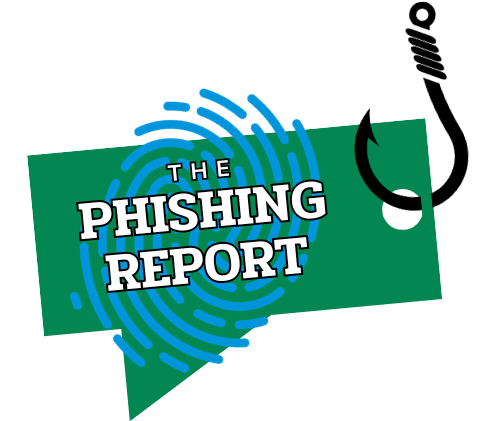You might think that IT support is a one-size-fits-all solution, but when it comes to various industries, tailored strategies are paramount. Imagine the impact of customized IT support on retail’s inventory management or healthcare data security. Each sector has its unique demands, and having specialized IT solutions can make all the difference in staying competitive and meeting industry-specific challenges. Let’s explore how different industries benefit from tailored IT support strategies and what key considerations drive these specialized approaches.
Key Takeaways
- Retail: Focus on efficiency, POS systems, and customer engagement.
- Healthcare: Prioritize security, HIPAA compliance, and staff training.
- Financial Services: Ensure data security, fraud prevention, and regulatory compliance.
- Education: Integrate IT support for operational efficiency and student engagement.
- Hospitality: Specialized IT support for guest data protection and personalized experiences.
Retail IT Support Solutions
When it comes to Retail IT Support Solutions, efficiency and reliability are paramount for ensuring smooth operations in the fast-paced retail industry. To excel in this competitive landscape, integrating advanced technologies such as point-of-sale systems, data analytics, and e-commerce integration is essential. Efficient inventory management, streamlined supply chain processes, and seamless payment processing are fundamental components of a successful retail IT support strategy.
Additionally, optimizing customer engagement through loyalty programs and omnichannel strategies can enhance brand loyalty and drive sales. Effective workforce management tools play an important role in ensuring staff productivity and customer satisfaction. By leveraging data analytics, retailers can gain valuable insights into consumer behavior and market trends, enabling informed decision-making.
Healthcare IT Support Strategies
When it comes to Healthcare IT Support, you must prioritize security to safeguard sensitive patient information from cyber threats. Compliance challenges in healthcare, such as meeting HIPAA regulations, require meticulous attention to detail and proactive IT support strategies. By addressing security concerns and steering through compliance challenges effectively, healthcare organizations can guarantee the integrity and confidentiality of patient data.
Security in Healthcare IT
Establishing robust security measures within the domain of Healthcare IT is crucial to safeguarding sensitive patient data and maintaining compliance with regulatory requirements. Data privacy is a critical aspect of healthcare IT security, especially when handling electronic records. Implementing stringent patient authentication protocols can help prevent unauthorized access and protect against cybersecurity threats. Regular cybersecurity training for staff is essential to mitigate risks associated with network vulnerabilities and potential cloud security breaches. Healthcare organizations must also be vigilant against IoT threats that could compromise sensitive information. Ransomware attacks pose a significant threat to patient data security and require proactive measures to prevent and address such incidents. Compliance with regulatory standards is non-negotiable, and secure communications channels are essential for maintaining the integrity of patient information. By addressing these key areas in healthcare IT security, organizations can uphold the trust of patients and establish the confidentiality and integrity of their data.
Compliance Challenges in Healthcare
Shifting from the vital domain of security in Healthcare IT, compliance challenges in the healthcare industry present a multifaceted landscape that demands meticulous attention to regulatory requirements. Guaranteeing data privacy, safeguarding patient records, and adhering to complex regulatory frameworks are paramount in this sector. Technology adoption brings both opportunities and challenges, requiring healthcare organizations to address interoperability challenges while embracing telehealth solutions and electronic health records.
To navigate these compliance challenges effectively, implementing robust training programs for staff is essential. This guarantees that employees are well-versed in compliance protocols and audit readiness. Furthermore, proactive risk management strategies need to be in place to mitigate potential compliance breaches.
Healthcare providers must stay abreast of evolving regulations to maintain compliance. By prioritizing data privacy, investing in technology that promotes interoperability, and fostering a culture of compliance through training and risk management, organizations can navigate the intricate landscape of compliance challenges in healthcare successfully.
Financial Services IT Solutions
Implementing robust IT solutions in the financial services sector is essential for ensuring operational efficiency and compliance with regulatory standards. To navigate the intricate landscape of financial services, prioritizing regulatory compliance, data management, risk assessment, and transaction security is vital. Leveraging cloud solutions can enhance scalability and flexibility while maintaining stringent security measures to protect sensitive financial information. Incorporating fraud prevention measures and customer analytics tools can help in detecting and mitigating potential risks proactively.
Embracing fintech innovations is paramount to staying competitive and meeting the evolving needs of tech-savvy customers. Implementing investment strategies that leverage data analytics and automation can optimize decision-making processes and drive profitability. Additionally, offering secure mobile banking services can enhance customer experience and accessibility while ensuring data privacy and compliance.
Education Industry IT Support
Within the domain of the Education Industry, the integration of robust IT support is vital in optimizing operational efficiency and enhancing educational outcomes. Cloud computing plays an essential role in facilitating remote access to educational resources, enabling seamless digital learning experiences. To guarantee student engagement and data privacy, a focus on IT training for educators and staff is essential. Software integration within the tech infrastructure enhances system reliability, while network management is key to maintaining a stable and secure IT environment.
In the Education Industry, tailored IT support strategies should prioritize the implementation of advanced technologies to support teaching and learning activities. By leveraging cloud-based solutions, educational institutions can provide flexible and scalable resources to students and educators. Emphasizing data security and privacy measures safeguards sensitive information, fostering a trustworthy learning environment. Continuous IT training programs guarantee that staff are equipped to effectively utilize IT tools, maximizing their impact on educational outcomes. Ultimately, a well-structured IT support system enhances the overall efficiency and effectiveness of educational institutions.
Hospitality IT Support Approaches
In the hospitality industry, you face unique tech needs that require specialized IT support to guarantee seamless operations. Security in hotels is paramount, with guest data protection and network security being top priorities. By strategically enhancing the guest experience through innovative IT solutions, you can differentiate your services and stay ahead in the competitive hospitality market.
Unique Tech Needs
With the rapid advancement of technology, the hospitality industry faces unique tech needs that require specialized IT support approaches to guarantee seamless operations and guest satisfaction. In order to meet these demands, hospitality businesses should consider implementing cloud computing solutions to enhance data accessibility and scalability. Remote monitoring tools can help manage networks and systems efficiently while ensuring minimal downtime. Utilizing data analytics enables hotels to make informed decisions and personalize guest experiences. Mobile integration is vital for providing guests with convenient services such as mobile check-ins and keyless entry. Dealing with legacy systems may require software customization to integrate them with modern technologies seamlessly. Cybersecurity training is essential to protect sensitive guest information and maintain trust. Embracing digital transformation allows hotels to stay competitive and meet evolving guest expectations. Network optimization is key to ensuring fast and reliable connectivity throughout the property. Prioritizing user experience in all tech implementations can lead to increased guest satisfaction and loyalty.
Security in Hotels
To guarantee the security of guest data and maintain operational integrity, hotels must implement a robust IT support strategy tailored to their unique needs. Hotel cybersecurity is paramount in safeguarding guest data and ensuring privacy policy compliance. Implementing access control systems, stringent network security protocols, and surveillance technology can help mitigate risks. In addition, having incident response plans in place and conducting regular security audits are essential for proactive threat management. Employee training programs should focus on cybersecurity awareness to minimize vulnerabilities. Hotels must also assess third-party vendor risks to prevent data breaches through external channels. By prioritizing guest data protection and investing in extensive security measures, hotels can build trust with customers and safeguard their reputations in the hospitality industry.
Guest Experience Enhancement
Elevating the guest experience through strategic hospitality IT support approaches can greatly impact customer satisfaction and loyalty. By integrating technology into various aspects of the guest experience, hotels can enhance personalized services, improve staff training, and utilize data analytics to understand customer preferences better. Customer feedback and online reviews play a significant role in shaping these IT strategies, guiding hotels to make informed decisions to meet guest expectations.
Service automation can streamline operations, allowing staff to focus more on providing excellent customer service. Implementing loyalty programs and interactive experiences through mobile accessibility can further engage guests and encourage repeat visits. By utilizing technology to create seamless and convenient experiences, hotels can leave a lasting impression on guests, leading to positive reviews and increased loyalty.
Manufacturing IT Support Strategies
Manufacturing IT Support Strategies play an essential role in optimizing operational efficiency and guaranteeing seamless production processes. By focusing on automation integration, supply chain management, production optimization, real-time monitoring, equipment maintenance, data analytics, workforce collaboration, quality control, IoT applications, and cybersecurity measures, manufacturers can enhance their overall performance. Automation integration streamlines processes, while supply chain management guarantees the timely delivery of materials. Real-time monitoring allows for quick decision-making, improving overall efficiency. Equipment maintenance schedules can be better managed to prevent downtime. Data analytics provide insights for informed decision-making, and workforce collaboration tools enhance communication. Quality control measures help maintain high standards, and IoT applications enable connectivity for improved operations. Implementing robust cybersecurity measures safeguards sensitive data and operational systems. By strategically incorporating these IT support strategies, manufacturers can achieve greater productivity, efficiency, and competitiveness in today’s dynamic market landscape.
Frequently Asked Questions
How Can IT Support Improve Customer Experience in Retail?
To enhance customer experience in retail, IT support can provide personalized assistance through omnichannel integration. This allows seamless interactions across online and physical stores, ensuring a cohesive shopping journey. Tailoring IT solutions to meet retail needs can drive customer satisfaction and loyalty.
What Cybersecurity Measures Are Crucial in Healthcare IT Support?
In healthcare IT support, data encryption safeguards sensitive information. Access controls limit unauthorized entry. Priority on patient privacy guarantees compliance. Incident response plans mitigate breaches. Network security fortifies systems. Ongoing staff training bolsters defense against cyber threats.
How Does IT Support Ensure Compliance in Financial Services?
In financial services, IT support guarantees compliance by aligning systems with regulatory frameworks, monitoring data security, and implementing risk management strategies. It’s essential to maintain a proactive approach to mitigate threats and safeguard sensitive information.
What Specialized Software Is Used in Education IT Support?
In education IT support, learning management systems like Moodle and Blackboard are essential for organizing online courses. Classroom technology such as interactive whiteboards and student response systems enhances engagement and collaboration, ensuring a dynamic learning environment.
How Can IT Support Streamline Operations in the Hospitality Sector?
To achieve ideal efficiency in the hospitality sector, streamline operations with IT support. Enhance staff training through interactive platforms, integrate advanced reservation systems, automate inventory management, and utilize data analytics for informed decision-making. Improve guest experience and boost productivity.
Final Thoughts
As industries continue to evolve and face new challenges, the need for tailored IT support strategies becomes increasingly essential. By understanding the unique requirements of each sector, businesses can leverage technology to enhance efficiency, security, and customer experiences. With the right IT solutions in place, organizations can stay ahead of the curve and drive success in their respective industries. Stay tuned for more insights on how to optimize IT support for your specific sector.

